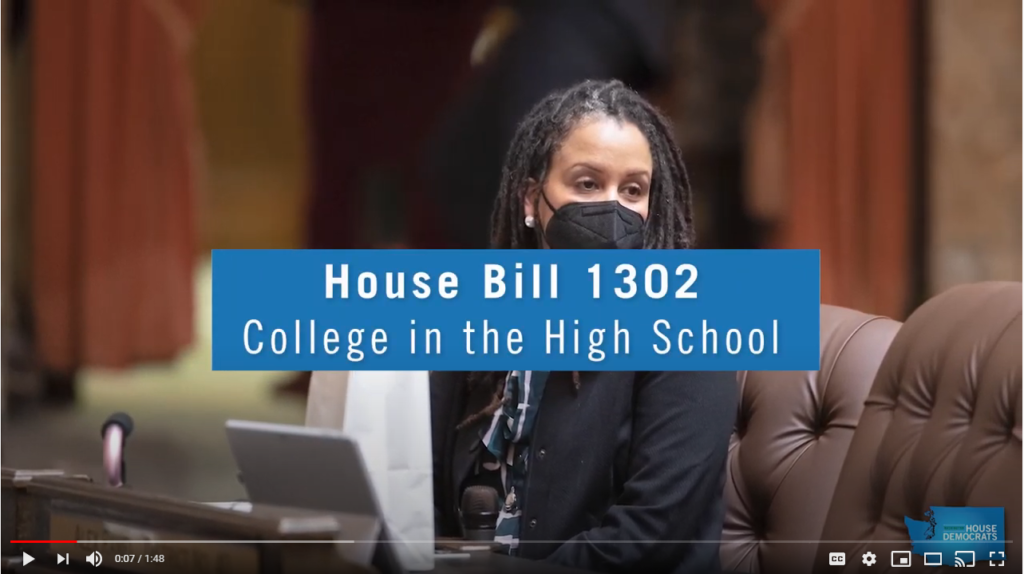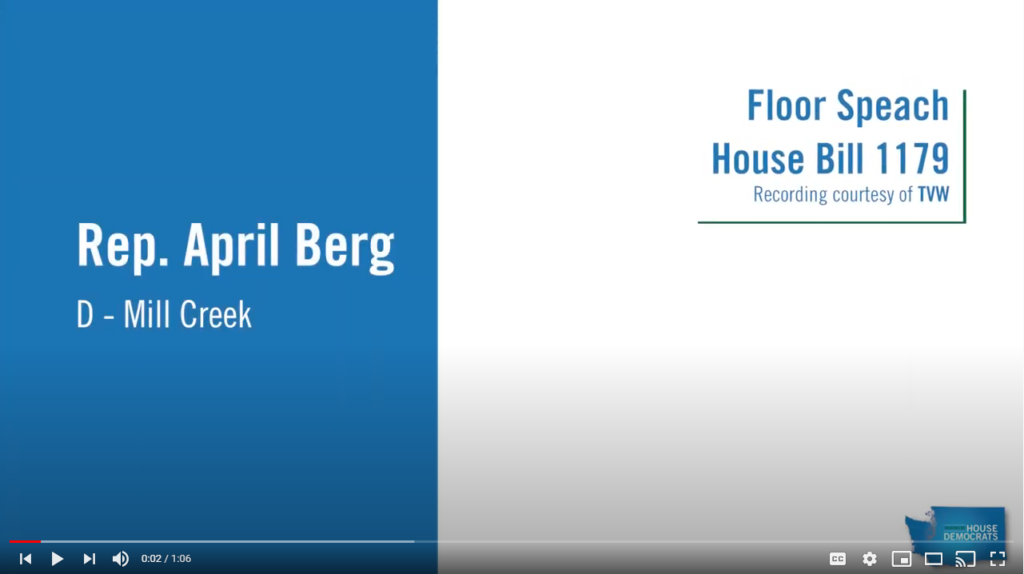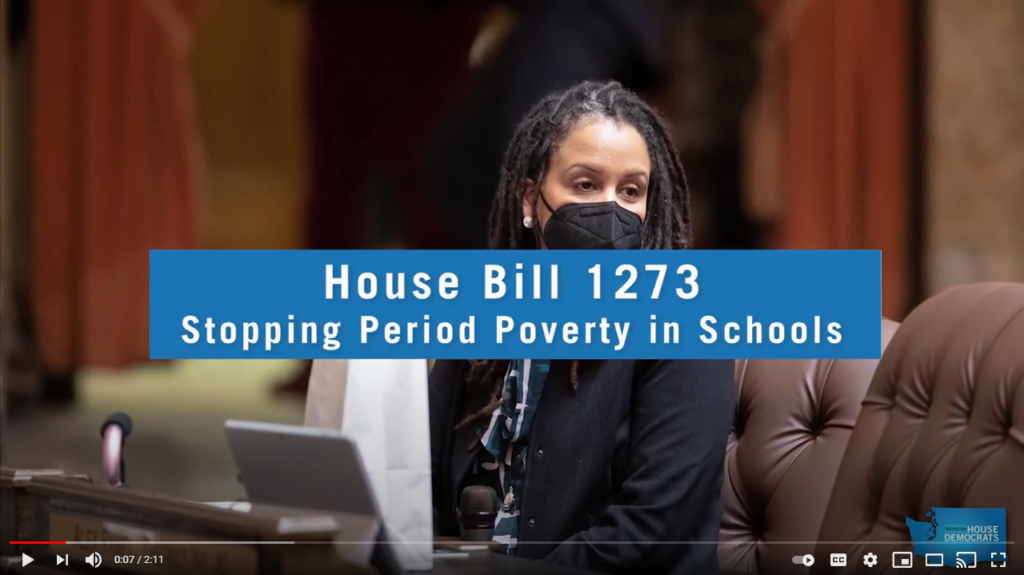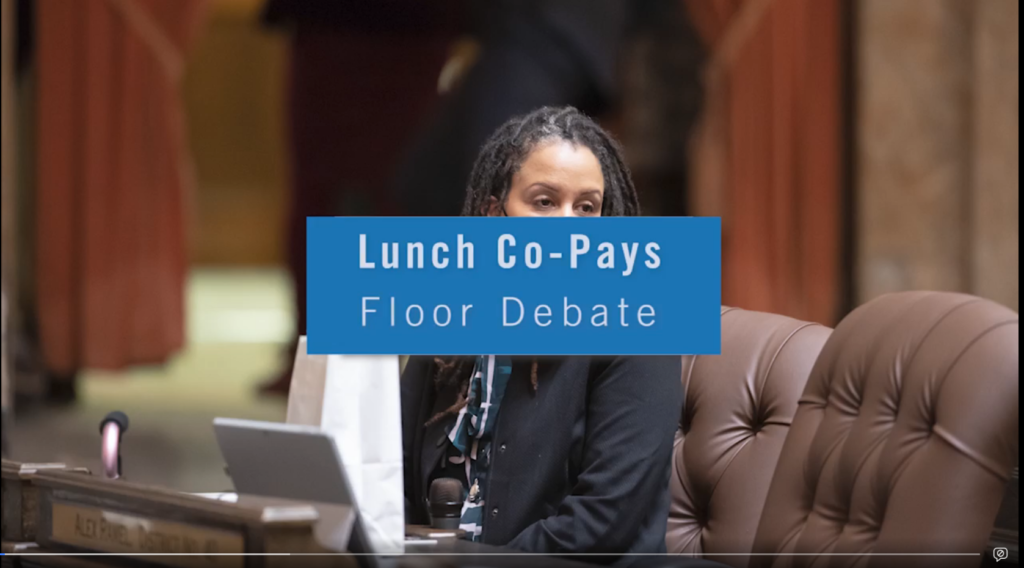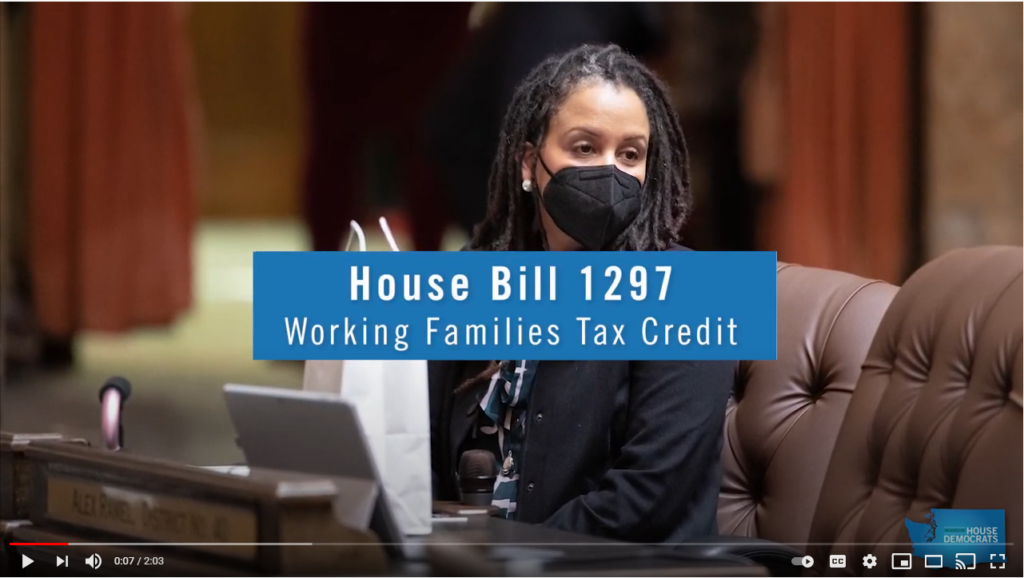Dear friends and neighbors,
How does your democracy really work?
As a freshman lawmaker in the House of Representatives, I’ve had a front-row seat to how laws truly get made. It’s an interesting process that’s always changing and adapting—and we’ve had to adapt a lot during our first remote session.
Right now, we are more than halfway done with the 105-day session. We have these long sessions during years when we write our state’s three budgets—operating, transportation, and construction.
Next year, there will be a short, 60-day session. Any bill that didn’t pass is still in play and can be amended, perfected, and brought back up for a vote.
Then we’ll have the 2022 elections and the cycle will start over.
The legislature just finished a key milestone called the House of Origin cutoff, which means all the policy bills from the House or Senate needed to have passed over to the other chamber.
All of those House bills are being considered by Senate committees, just like we’re busy in committee holding hearings and votes on Senate bills.
The exceptions to all this are the budgets and bills that raise revenue or spend money. You might hear a lawmaker say a bill is NTIB—that means it’s Necessary To Implement the Budget and exempt from the normal cutoff deadlines for policy bills.
Updates on my legislation
Veteran lawmakers tell me that having five bills pass the House and get to the Senate is rare and lucky.
I will say that lucky or not, getting a single bill passed takes a team effort and a lot of work. Thank you to everyone back home who took the time to testify or advocate for these bills.
A common theme with these five bills is bipartisanship. I’ve tried hard to listen to everyone and work with lawmakers from both parties and both chambers of the legislature.
College in high school
The idea behind this is simple: equal credit for equal work. If a ninth-grader and a tenth-grader are taking the same class for college credit, why was the system penalizing the ninth-grader?
This legislation will fix that problem.
Status: House Bill 1302 is in the Senate Early Learning/K-12 Committee.
Fire districts
Local fire districts are a crucial part of our public safety umbrella. This bi-partisan bill was supported by the State Fire Chiefs Association and the State Fire Commissioners Association.
This was my first bill to get a vote in the House and it passed unanimously.
Status: House Bill 1159 is in the Senate Agriculture, Water, & Natural Resources Committee.
Stopping period poverty in schools
Far too many girls are missing school days–and falling behind on school work–because they can’t afford period products.
This legislation will end period poverty in our schools by making menstrual products free in school restrooms. It’s a small change that will make a big difference for girls across the state.
Status: House Bill 1273 is in the Senate Early Learning/K-12 Committee.
Timber industry
This is a bipartisan bill, supported by the timber industry and the Department of Revenue, that will help protect jobs in the timber industry.
Status: House Bill 1055 is in the Senate House & Local Government Committee.
School lunch co-pays
Hungry kids struggle to learn. This legislation removes the last barrier to making sure no child in our public schools is going hungry at lunch.
Status: House Bill 1342 is now in the Senate Early Learning/K-12 Committee.
Good news for working families
The Working Families Tax Credit will mean help for so many people who are working and struggling to make it.
I was proud to speak on the floor in favor of this landmark bill and proudly voted yes.
This legislation is now being considered in the Senate.
What’s next?
Soon, the House and Senate will unveil proposals for the operating, transportation, and construction budgets.
Negotiations will start, and we will begin voting on the passage of Senate bills in our committee and the floor of the House while the same process happens with our bills in the Senate.
During the last three weeks of the session, we stop splitting our time between committee meetings and exclusively debate and vote on bills on the floor of the House.
On the last day of session, we’ll pass the three budgets and adjourn “sine die”–Latin for “without day” or “indefinitely.” That’s why you’ll hear lawmakers talk about the end of session as sine die.
Keep in touch
Thank you for your emails, calls, and Hotline messages.
Please get in touch to share your questions or comments. Thank you!

